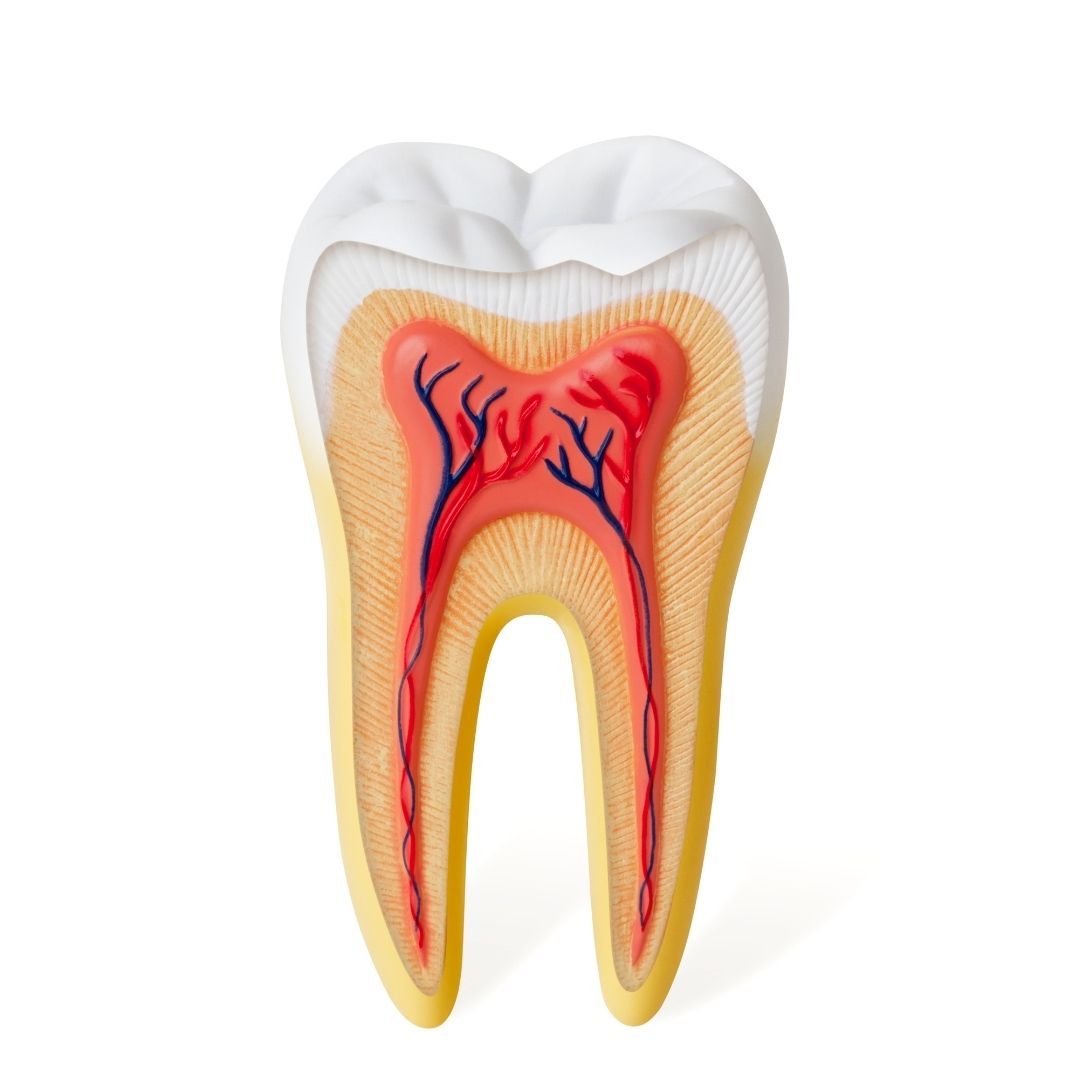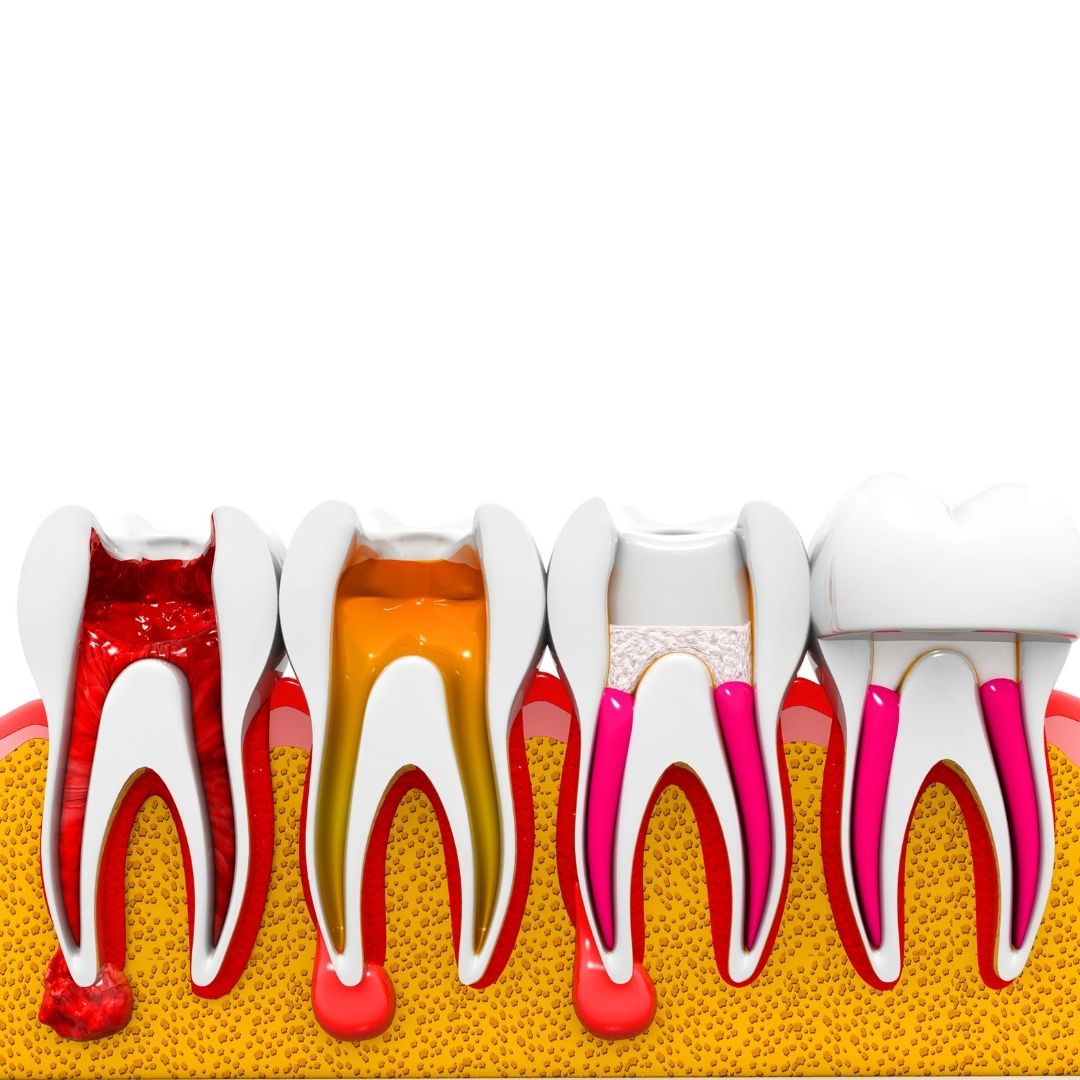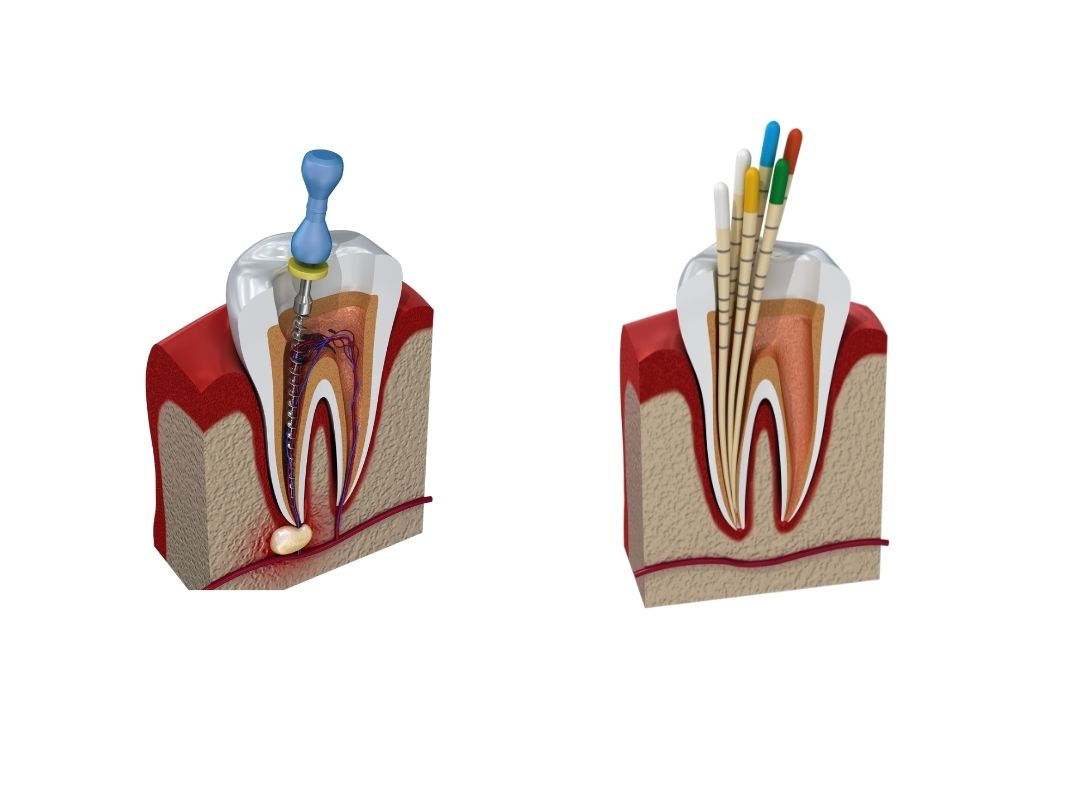If you notice any of the aforementioned symptoms, contact us as soon as possible so that we can help you and solve your problems.
The dental pulp gives vitality to the tooth by supplying it with blood vessels and nerves. It is located in the interior of the tooth and is thus protected from external influence (bacteria, variations in the pH of the oral cavity).
If caries is not recognized and treated in time, the hard dental tissues (enamel and dentin) become damaged and the pulp is exposed and ultimately infected.
Pain is one of the main symptoms of acute inflammation, accompanied by sensitivity to cold and hot foods, and swelling or fistula (purulent pimple) may also appear. However, pain is not always present, which is why x-ray diagnostics are extremely important.
If you have any of these symptoms, you may be a candidate for endodontic dental treatment:
If the acute inflammation is not treated in time, it turns into chronic inflammation that spreads directly into the bone, causing an inflammatory process around the tip of the root – a granuloma.
We diagnose it using X-rays. It looks black, i.e. translucent in the area around the root of the tooth (periapex).
Endodontics is a branch of dental medicine that deals with the treatment of pathological processes that affect the dental pulp.
Endodontic treatment is performed by removing hard dental tissue affected by caries and the entire pulp from the center of the tooth crown and root canals. We thoroughly clean, process and rinse the canals with special instruments and antiseptics and then fill them with biocompatible materials to prevent further penetration of bacteria into the interior of the root and preserve the tooth.
After the root canals have been filled, it is important to adequately compensate for the missing part of the tooth crown, usually with a filling or with a prosthetic replacement if the loss of tooth tissue is too great.
After the procedure, the pain may last for a few more days, but if the pain does not stop or if it intensifies, you should definitely consult a dentist to find out why
At the Petković Polyclinic, we exclusively use one of the newest motor techniques for the mechanical preparation of root canals in dental treatment – the Reciproc technique.
Such instruments are designed to preserve the original appearance of the canal, so it would not require additional expansion as in the case of manual instruments, which reduces the duration of the treatment. The Reciproc technique allows for an easy treatment of curved root canals, which are often difficult to treat sufficiently with manual instruments

Caries removal and tooth nerve extraction

Root canal filling

Making aesthetic fillings or crowns









